Reporting Roof: Journalists discuss Dylann Roof’s death penalty trial

Photo Credit: Wikimedia Commons
Dylann Roof’s signature as provided by the NY Daily News. Roof massacred nine parishioners at Emanuel African Methodist Episcopal Church in July 2015.
In June 2015, Dylann Roof entered Emanuel African Methodist Episcopal Church with one purpose: to kill.
Roof, age 21 at the time, took the lives of nine worshippers at a historic black church in Charleston, S.C., and is now sentenced to death. He had decided to represent himself in this deeply moving and history-making trial.
“The Roof case is a uniquely horrible story that highlights both hatred and love. While the alleged shooter’s goal seems to have been to target racial divides and exploit them to tear apart Americans, the complete opposite happened,” said Carter Coyle, an investigative reporter at Live 5 WCSC-TV in Charleston, S.C.
Four Charleston based reporters have shared their unique experiences and the strength it takes covering this landmark case, and emphasize the contrasting feelings between Roof and the rest of the courtroom.
Coyle found out about this case through the station she was working at when the shooting happened, WGHP in Greensboro, N.C., where the event became national news within hours.
“I didn’t realize I’d be living and working in Charleston when the Roof trial rolled around, but this is somewhere I’ve always wanted to work,” Coyle said.
Although this is an “incredibly emotional” trial according to Coyle, she said that the most interesting part of the case will be learning more about his beliefs and motivations.
“If he is found guilty and we move to the sentencing phase, hearing Roof represent himself and try to convince the jury to give him Life Without Parole instead of the Death Penalty will be fascinating,” Coyle also said.
Living and working in Charleston during this trial, Coyle said this trial will and still is personally affecting her life.
“I believe this case is putting life into perspective for everyone in the courtroom,” Coyle said.
Coyle said the most emotional part of the trial for her was the testimony of survivor Felicia Sanders, whose son, Tywanza, and Aunt Susie died in the massacre.
“She described hiding with her granddaughter under a table, telling her to ‘play dead,’ and spreading her son’s blood on them in case the shooter looked under the table- maybe he’d think he already shot them,” Coyle said in reference to Sanders’ testimony.
Coyle wasn’t the only one moved by Sanders’ stirring testimony.
“It was an absolutely horrific testimony. Ms. Sanders cried on the stand but was so strong. Everyone was crying, including reporters, a defense attorney, the jurors, and family members,” Coyle said.
Coyle even cried herself.
“It was really hard to stop myself. But I when I looked around and saw jurors, attorneys, family members, and other reporters crying, some sobbing, it made me realize we are all human. I can’t just turn off my most empathetic emotions because I’m working.”
On the other hand, though, Coyle said Roof expresses no emotion.
“He looks down and straight ahead. He doesn’t look at the witnesses or jurors. He talks with his attorneys. He looks at the judge when speaking to him, but that’s about it,” Coyle said.
This is not only Coyle’s opinion, though. Roof has been described as “emotionless” by other reporters covering this case.
Coyle would also like to add that she believes “the right to a fair trial is a fundamental constitutional value,” and that it is surprising to hear people saying, “Why are they bothering with a trial? Just kill him already.”
“Would we really want to live in a society that immediately executes people without knowing the facts and circumstances of a case? Without proving guilt beyond a reasonable doubt? I don’t think so,” Coyle said.
In total, Coyle said she felt “extreme sadness and disbelief that such hate exists in our country this day and age.” She hopes this is an isolated incident.
Jennifer Berry Hawes, a projects reporter at The Post and Courier, is writing a book about the massacre.
“The most interesting aspects to me are the racial issues at play, including the existence of such violent racism in today’s society and the targeting of innocent black worshipers at a church simply because of their skin color,” Hawes said.
Roof, who is representing himself, wrote, “I want to state that I am morally opposed to psychology,” in his journal, which could be one of the reasons why he chose to represent himself said Hawes.
“It appears that he doesn’t want the defense to introduce mental health evidence in the penalty phase,” Hawes said. “If he acts as his own attorney, he can control what evidence he introduces.”
Hawes, who used to be the religion writer for her newspaper, also said that hearing Sanders’ testimony was the most emotional part for her.
“Seeing the crime scene and hearing Roof’s confession in which he spoke so nonchalantly about taking people’s lives, I felt an enormous sorrow for the senselessness of it all,” she said.
Hawes also has gotten to know some of the family members of victims, and said she feels “tremendous sympathy for the pain they are enduring through no fault of their own.”
The highlight of the trial for Hawes was the jury selection, in which Roof helped pick his own jury.
“It was the first time most people had heard him speak, and he seemed to be mostly attentive unlike now in court when he stares at his defense table and doesn’t move,” Hawes said.
Roof, who ran a white supremacy website, also wrote a manifesto highlighting his reasoning behind his extreme beliefs (note: be aware of racial slurs).
Hawes describes his manifesto as “deeply offensive to (I hope) the majority of people of all races,” and, “based on horrible stereotypes of African Americans.”
In addition, Roof’s confession tape has been released this past month, in which he laughed when confessing his guilt.
“I realized how little emotion he had toward what he’d done, – he even laughed about it,” she said in reference to Roof’s confession tape. “He sounded like he’d just played a joke on someone and thought it was kind of funny.”
Hawes said she expected him to be more of a “rabid, angry type of white supremacist.”
Hawes said the shooting was, “an enormously important news story that impacted our community in many ways.”
Glenn Smith, the Watchdog and Public Service Editor for The Post and Courier in Charleston, S.C., lived a few blocks away from Emanuel AME Church.
“I did not know the nine people killed, but they were my neighbors, nonetheless,” he said. “I also watched how the massacre affected my community, uniting people in grief, shock and mourning.”
Smith was also at the scene that night.
“It was chaotic, emotional and extremely disturbing,” he said, describing the scene that night.
Like many of the reporters before, Smith also described Roof as showing “little or no emotion throughout the case.”
“He has spent much of the trial staring down at the table in front of him, stone-faced, as people testify,” Smith said. “When he addressed the jury on Wednesday, he spoke for less than five minutes in a flat and hollow tone. His main message: ‘There is nothing wrong with me.’”
Smith also said the testimonies of the survivors were the most emotional part for him.
“The testimony from the survivors was quite disturbing, as were crime scene photos showing the bodies of those who died,” Smith said.
In addition to the testimonies of survivors, the testimonies of friends and family members were an emotional touchstone for him.
“It has also been hard to listen to the friends and family of the dead explain what good people they were, and how their loss had torn people’s lives asunder,” Smith said.
Echoing Hawes, Smith also says the reasoning behind why Roof chose to represent himself is due to the fact that he did not want mental health evidence presented.
“Defense lawyers would typically pursue these avenues to show mitigating factors contributed to a defendant’s actions,” Smith said. Roof said he is not mentally ill, nor is he trying to hide anything.”
In addition, Smith said that Roof has indicated that he does not want any evidence regarding his family history to be presented.
“He told the jury he simply does not want to lie to them,” Smith said.
Smith, who also saw Roof’s confession tape, said, “We learned more about his reasons for committing the killings, including his views about African Americans and his desire to foment a race war.”
Roof’s confession also shows that he did not realize how many people he had killed, had no escape plan, and that he saved a magazine bullet to take his own life (he did not after he discovered no police outside and/or on the scene).
“It is rare for the federal government to seek the death penalty against a defendant, and rarer still to have a parallel death penalty case proceeding in the state courts,” Smith said.
Meg Kinnard, a political and legal affairs reporter for The Associated Press based in S.C., was also in Charleston the night the shooting occurred.
“To say that [the shooting] made an impact on our consciousness is a colossal understatement.” Kinnard said. “My first thoughts were shock at what had reportedly happened, but in these situations, I have to remove myself personally and focus on gathering the facts and putting the story together.”
Since that night, Kinnard has been covering the manhunt, arrest, preparation, and trial.
“This story has captivated not only South Carolina but the country as a whole, for not only its gruesome nature and racial implications, but also the mercy shown by the victims’ families through their grief,” Kinnard said.
Kinnard said the most interesting part of the trial for her is watching the legal system at work, as she is fascinated by it.
She said, “The order of witnesses and the testimony they present can seem random at first, but when you take stock of what happened on any given day of trial and see how the puzzle pieces all fit together, it’s quite amazing.”
The most emotional part for her has just been sitting inside the courtroom.
“Being in the courtroom as members of the victims’ families looked at images from the crime scene was incredibly intense,” Kinnard said. “It’s a lot- even for the most seasoned journalists- to internalize.”
Kinnard was another person who viewed Roof’s confession tape in court.
“I wasn’t prepared for how calm and even jovial his demeanor was during his conversations with law enforcement,” Kinnard said. “Roof expressed no visible emotions when the verdict against him was read, staring straight ahead as he did for much of the trial.”
Kinnard said separating herself from the story can be difficult, but it is vital for balanced coverage.
“It’s also important, though, as a human being, to allow yourself time to process and work through news events on a personal level, and that’s something of which I’ve had to remain aware,” Kinnard said,
This case is powerful for journalists or reporters to cover, exemplified by these four strong individuals.
“I imagine finding beauty, love and support after this tragedy is what gives the surviving victims and their families hope,” Coyle said.

Chloe Siohan is a senior at Glen Rock High School. This is her third and final year writing for The Glen Echo. Her favorite subject in school this year...



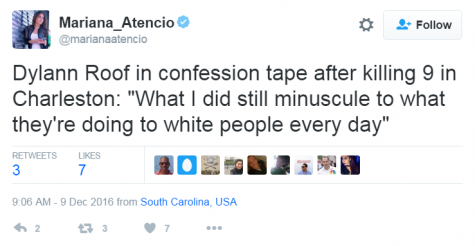
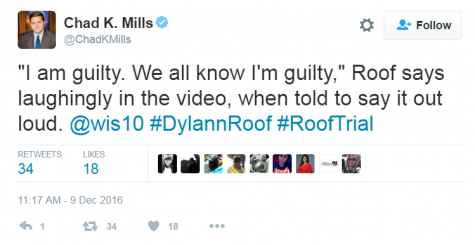
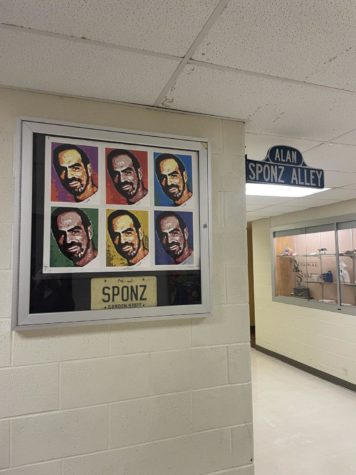

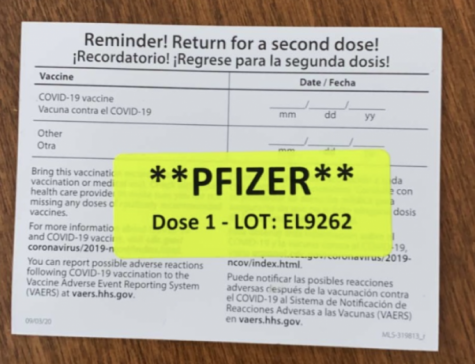
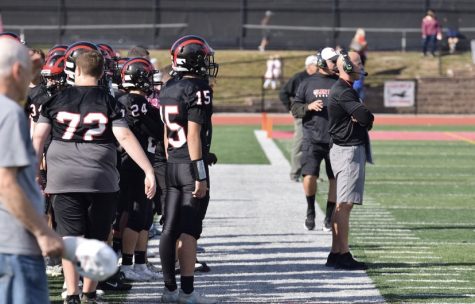
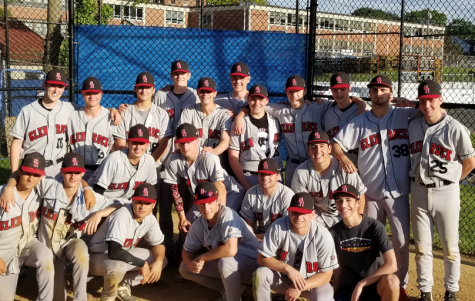

Charlotte S • Jan 14, 2017 at 1:56 pm
Very interesting article! For such a mature topic for a 9th grader to cover, I think you nailed it! Props to the young journalist who chose such a moving, historic case to write about.
tara Hennicke • Jan 12, 2017 at 10:05 pm
Very well written and researched article. Kudos to this young reporter and editors. Who says print journalism is dead? It is alive and well in High school newspapers across he country.
Deridre Roberts • Jan 12, 2017 at 9:12 pm
I am so curious as to why oh why Dylan both representatived himself and asked to live…